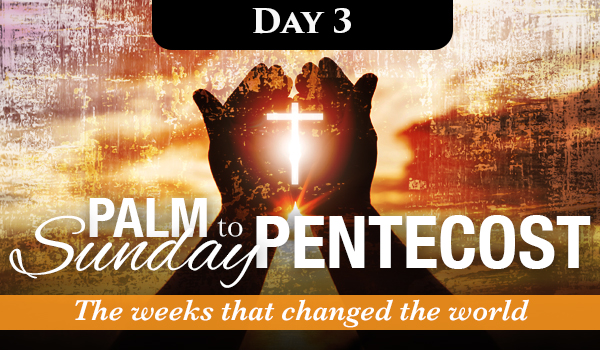He has appeared once for all at the culmination of the ages
to do away with sin by the sacrifice of himself.
Hebrews 9:26b
The Hebrew people were enslaved in Egypt. Pharaoh refused to let them go, so God struck the land of Egypt and its inhabitants with several plagues. He also spoke to and directed the Hebrew people through Moses and Aaron.
As this situation reached its climax, God warned the people to prepare for His judgment to be poured out on Egypt. This judgment took the form of God striking down the Egyptian firstborn—both human and animal. The only way for the Hebrews to be spared the same fate was to sacrifice a year-old spotless lamb or goat and put its blood on their doorposts. It was called the Passover lamb (Exodus 12:21).
For generations after and even to this day, the Hebrew/Jewish people have celebrated Passover. It takes place on the fourteenth day of the first month on the Jewish religious calendar and is immediately followed by the Feast of Unleavened Bread, which we will look at tomorrow (Leviticus 23:4–8).
Blood was not only required to spare the Hebrew people from God’s judgment on Egypt, but it was also required on an ongoing basis to atone for, or cover, the sins of the people (Leviticus chapters 4–7). Specifically, it involved the blood of an “innocent” animal. The mere thought of this is foreign to us today—perhaps even brutal in the modern world—because our lives don’t revolve around herding and livestock.
This blood sacrifice would still be required if something hadn’t happened two thousand years ago. The blood of the innocent Son of God had to be shed once and for all. The author of Hebrews echoed the message of Leviticus 17:11 and affirmed that “without the shedding of blood there is no forgiveness” (9:22). And so it would be shed.
When John the Baptist first saw Jesus, he immediately prophesied what was to come: “Look, the Lamb of God, who takes away the sin of the world!” (John 1:29b). It was a foreordained death, for Jesus was “the Lamb who was slain from the creation of the world” (Revelation 13:8).
Animal sacrifice ended with the destruction of the Second Temple, but the Jewish people have continued to commemorate Passover and look for a Messiah who has actually already come. Most modern-day Jews do not recognize that the ultimate Passover Lamb came once and for all to atone for their sins.
As we stand a few days from studying this fateful night in the life and ministry of Jesus, we should think of the Jewish people today who have not recognized the Lamb of God. Join me in praying for the Lord to awaken their hearts and bring the End Times revival to His people.
